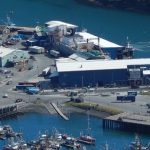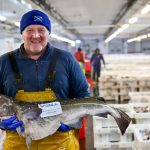In a clear message to Scotland’s incoming First Minister, the Scottish Fishermen’s Federation states that there is an urgent need to rebalance the green agenda – to ‘right the wrongs’ of the Bute House Agreement and commit to putting support for fishing towards the top of the agenda.

This follows the collapse of the Bute House Agreement and the end of power-sharing between the SNP and the Scottish Greens, and the launch of the SFF’s initial Industry Trends and Attitudes Report that highlights the positive progress towards long-term sustainability being made by the Scottish fishing fleet.
SFF chief executive Elspeth Macdonald has called on the government to shift its perspective on the fishing industry amid the political upheaval. While acknowledging that there is always more to do, fishing already represents a climate-smart sector, boasting a very low carbon footprint and producing healthy, sustainable seafood from our naturally renewable resources.
‘The Bute House Agreement was disastrous for Scotland’s fishing sector. It failed to recognise any positive benefits of fishing, seeing nothing but ‘problems’ that needed to be solved. However, we saw with last summer’s scrapping of the Bute House Agreement’s proposals for Highly Protected Marine Areas that the Scottish Government did listen, and withdrew these ill-conceived, ideologically driven and unevidenced plans,’ Elspeth Macdonald said.

The report delves into key social and political issues such as the industry sustainability efforts and food security, as well as the environmental impact of the sector, and culminates in a call to action for political collaboration to not only protect the sector, but to work with government and other relevant stakeholders to help ensure Scotland’s fishing is biologically and socio-economically sustainable for the long term.
‘Fishing is at a critical juncture, from the spatial squeeze of competing marine interests to ongoing debates surrounding sustainability and conservation. There are many elements which can impact on our great industry, of which Scottish people are rightly proud,’ Elspeth Macdonald said.
‘It is heartening to see that there is broad support not just from the public but also in Holyrood for our fishing fleets, with so many signatures from across different political allegiances supporting our goal to protect what we see is a jewel in Scotland’s crown. Now is the time for action, and what we now ask for is calm rational debate on how we can move forward from what have been difficult times. We invite everyone to explore the modern fishing industry beyond outdated stereotypes, and hope this report will provide a comprehensive review of our sector.’
The full report is available here.









